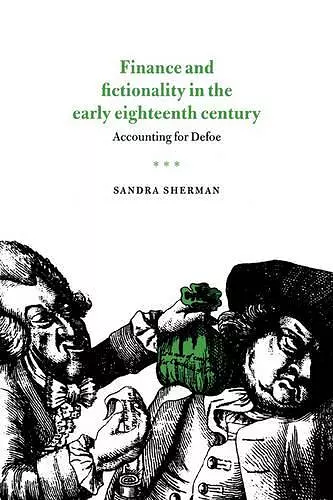Finance and Fictionality in the Early Eighteenth Century
Accounting for Defoe
Format:Hardback
Publisher:Cambridge University Press
Published:4th Apr '96
Currently unavailable, currently targeted to be due back around 15th April 2025, but could change
This hardback is available in another edition too:
- Paperback£39.99(9780521021425)

Explores the blurring of distinctions between finance and fictionality through the work of Daniel Defoe.
In the early eighteenth century, the increasing dependence of society on financial credit led to a blurring of the distinctions between finance and fictionality. The work of Daniel Defoe, which straddles finance and literature, epitomises the market's capacity to take advantage of the new instability of discourse.In the early eighteenth century, the increasing dependence of society on financial credit provoked widespread anxiety. The texts of credit - stock certificates, IOUs, bills of exchange - were denominated as potential 'fictions', while the potential fictionality of other texts was measured in terms of the 'credit' they deserved. Sandra Sherman argues that in this environment finance is like fiction, employing the same tropes. She goes on to show how the work of Daniel Defoe epitomised the market's capacity to unsettle discourse, demanding and evading 'honesty' at the same time. Defoe's œuvre, straddling both finance and literature, theorizes the disturbance of market discourse, elaborating strategies by which an author can remain in the market, perpetrating fiction while avoiding responsibility for doing so.
"Sherman presents a rich reading of a central problem for those who would confront Defoe's fictional and quasi-fictional work..." 1650-1850
ISBN: 9780521481540
Dimensions: 235mm x 159mm x 19mm
Weight: 470g
236 pages